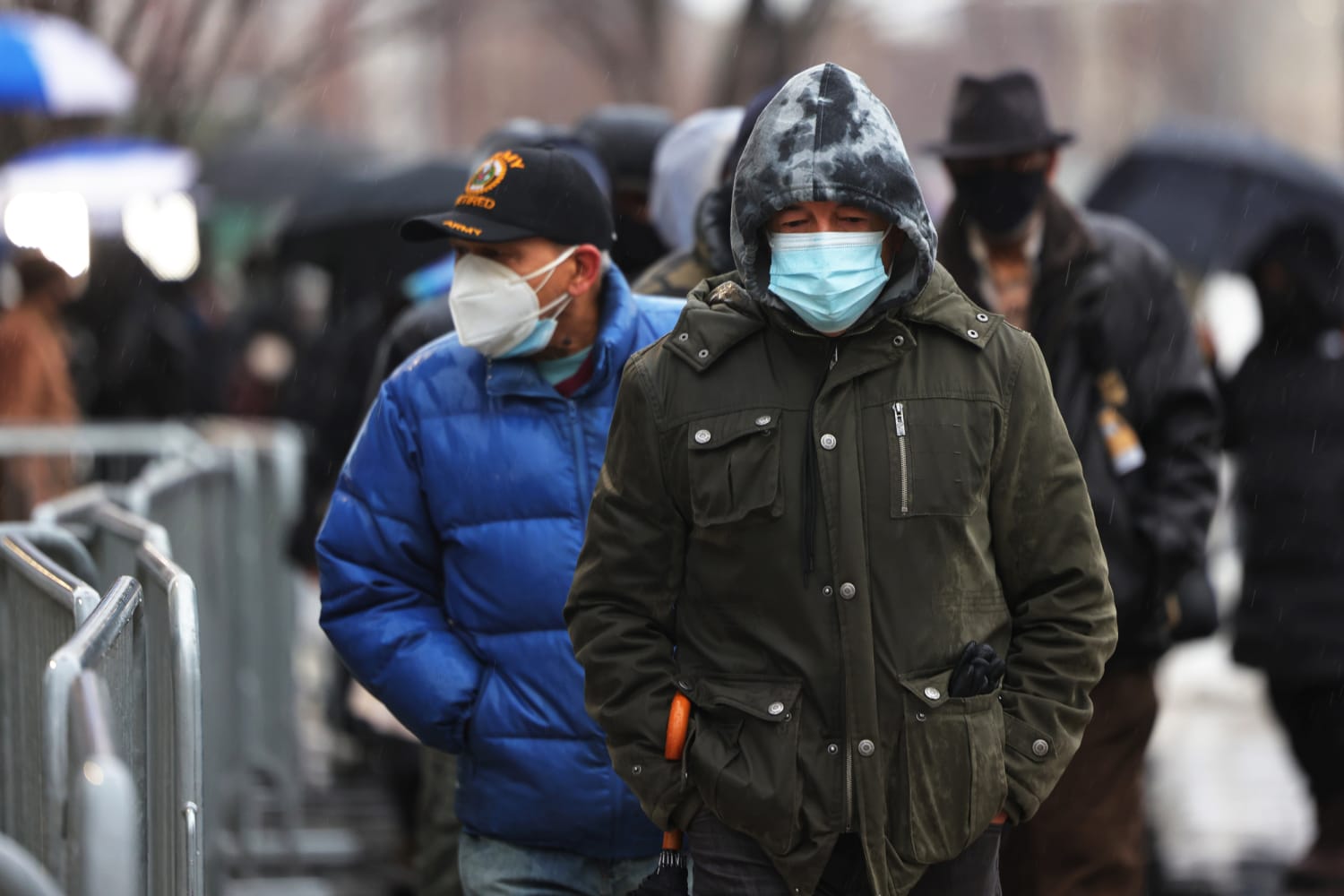The extreme winter weather covering much of the U.S. is causing enough disruption to vaccinations that the country may take slightly longer to reach herd immunity against Covid-19, potentially extending the length of the pandemic, experts who are following the vaccination rollout said.
“Any delay now is going to delay the amount of time it takes to get there,” said Bruce Y. Lee, a professor of public health and health policy at the City University of New York.
The full extent of the disruption isn’t yet known, but the Centers for Disease Control and Prevention warned late Tuesday that there were likely to be “widespread delays” in vaccine shipments and deliveries over the next few days. The announcement came after states and local municipalities had already canceled many appointments.
The vaccination disruptions are widespread in part because weather has affected major shipping hubs. According to the CDC, shipments have been delayed out of a FedEx facility in Memphis, Tennessee, and a UPS facility in Louisville, Kentucky. They are vaccine shipping hubs for multiple states, the agency said.
Health workers may be able to make up at least some ground once temperatures warm up and electricity is restored to millions of people without power in Texas. In Marion County, Alabama, the health department said on Facebook that it was planning extended clinic hours Thursday and Friday “and into next week as needed” to accommodate people whose vaccine appointments were originally scheduled for early this week.
But experts said it was not a certainty that all agencies could get back on track — and that each day that goes by is invaluable to the vaccination effort.
Lee said that, in the short term, the spread of Covid-19 infections may slow in the hardest-hit states if people stay home and socialize less, but that the severe weather bringing ice and low temperatures had clearly disrupted the day-to-day work of vaccinating people as quickly as possible.
“The effect that it may have is over the longer term,” Lee said. “It will just take longer to achieve the levels of coverage that we need to achieve to slow the spread of the virus.”
Public health officials have said that more than 70 percent of the population would have to be vaccinated to reach herd immunity and stunt the pandemic.
Dr. Peter Hotez, a dean at the Baylor College of Medicine who specializes in vaccine delivery, said time is of the essence especially because the spread of new coronavirus variants may reinfect people who’ve already had Covid-19.
“We’re in a bit of a race. We’re in a race against these variants, so it’s really a crisis,” Hotez said. “Any vaccine we have, now is the time to give it out.”
One strain first identified in the U.K. is doubling its reach about every 10 days, according to a study published this month.
South Carolina’s state health department said it had warned providers in the state to expect delayed shipments, advising them to “frequently check the tracking numbers” provided for their weekly shipments.
But the extreme weather was also making it difficult for clinics to operate. Some clinics closed Tuesday from Indiana to Maine, from Michigan to Texas, and places in between. In Florida, the Public grocery chain said it was delaying the launch of an online portal to schedule vaccine appointments because of the weather.
Some clinics planned delayed openings Wednesday, depending on the weather.
Source: | This article originally belongs to Nbcnews.com










